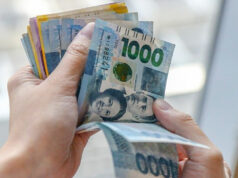Davao expands partnership with Japanese city to agri ventures
DAVAO CITY — Davao and its Japanese sister city Kitakyushu will be exploring cooperation in agribusiness, particularly in cacao and eel farming, as an expansion of their current partnership in solid waste management and environmental protection.
Davao Mayor Sara Duterte-Carpio, in a news conference last week following a trip to Kitakyushu City for the signing ceremony, said while “the focus is the Green Sister Partnership,” Japanese businessmen have expressed interest in tapping Davao’s cacao industry and eel farms.
“For the first time Davao City has a sister city in Japan,” Ms. Carpio said, “Kitakyushu is helping (us) with best practices in solid waste management and environmental protection.”
In that aspect, however, Davao City has nothing to offer in return, she added.
“It started as a Green Sister City Agreement, meaning environmental projects, but developed into agricultural partnerships during the discussion with the mayor (of Kitakyushu),” Ms. Carpio said.
A delegation from Kitakyushu City is expected to visit Davao City next year to look at the cacao sector and eel farms in the Toril area.
Ms. Duterte said initial talks indicated interest in “bulk supply.”
“They will have to look around in Davao City if our supply can meet the demand in Japan,” she said.
During the trip to Kitakyushu, Ms. Duterte, along with seven city officials and two representatives from an environmental organization, visited the city’s waste-to-energy (WTE) facility, Material Recovery Facility, and reviewed waste management practices.
Davao will receive a grant from the Japanese government for the proposed P70-million WTE project, which is planned as a joint venture between Nippon Steel, Davao, and Kitakyushu.
Ms. Duterte said she sees the WTE as a promising alternative to the city’s existing sanitary landfill site, which is expected to reach full capacity in a few years.
However, the WTE facility is being opposed by the group EcoWaste Coalition. — Maya M. Padillo



